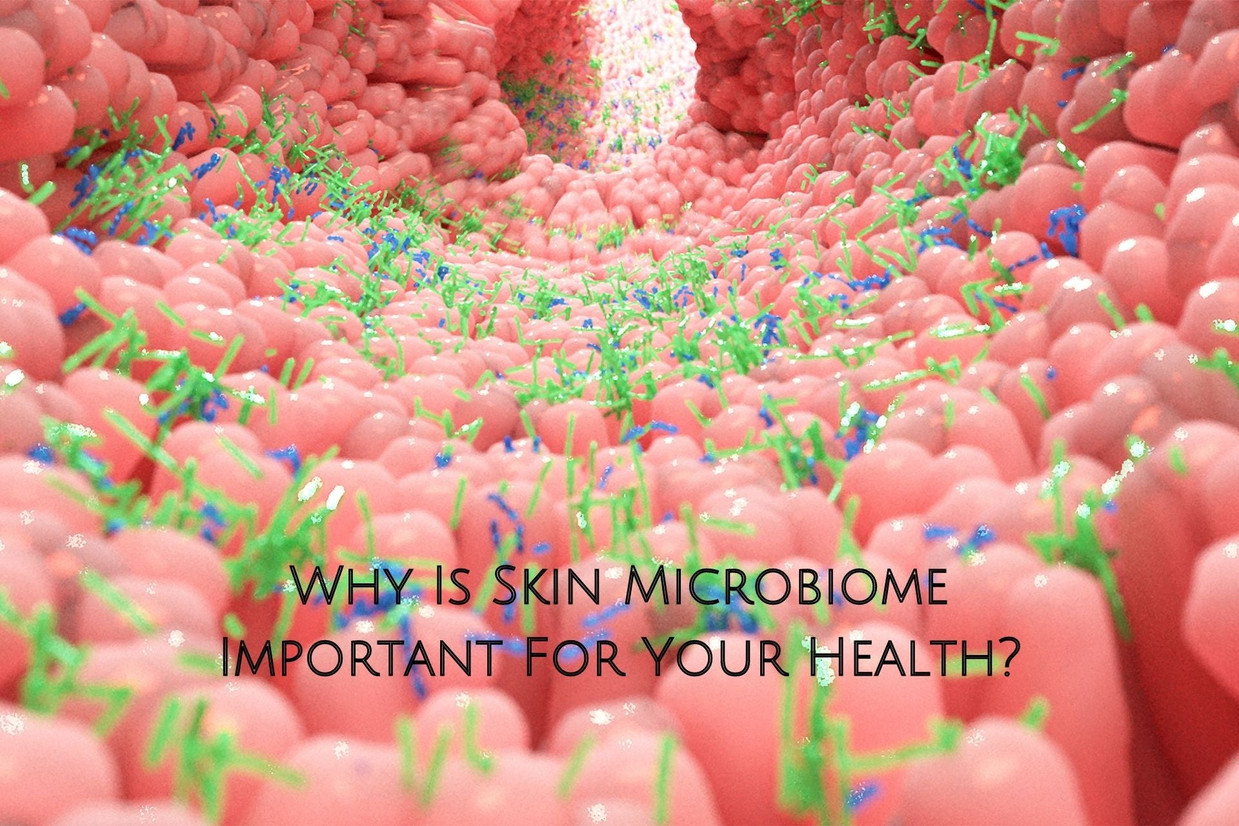Why Is Skin Microbiome Important For Your Health?
Do you know your skin microbiome is a defense against harmful pathogens and helps protect your body? Your skin will look and feel healthy if it has a balanced microbiome.
When it comes to health, the skin isn't likely to be what we first think about. Our overall health depends on our skin, specifically our skin microbiome. Skin is one of the human body's biggest organs, which shields the body from external influences. It is now the subject of study for researchers from different fields of science. Microorganisms are responsible for the proper function of the skin. The inter-relationships between these microorganisms and their response to environmental influences are paramount since dysbiosis can lead to severe skin conditions.
The skin plays a significant function in adapting to the body's physiological changes in the environment and influences the immune system and emotions. The microbiota on the skin plays an important function in the maturation of keratinocytes and their implications for the host immune system. If damage is caused to the protective barrier, it is not just possible for skin infections to develop, but various other non-communicable inflammatory diseases may threaten the host. A dysbiosis of the stratum corneum has been linked to the development of allergy disorders (eczema and food allergy) and rosacea, psoriasis, and acne vulgaris.
What Is the Skin microbiome?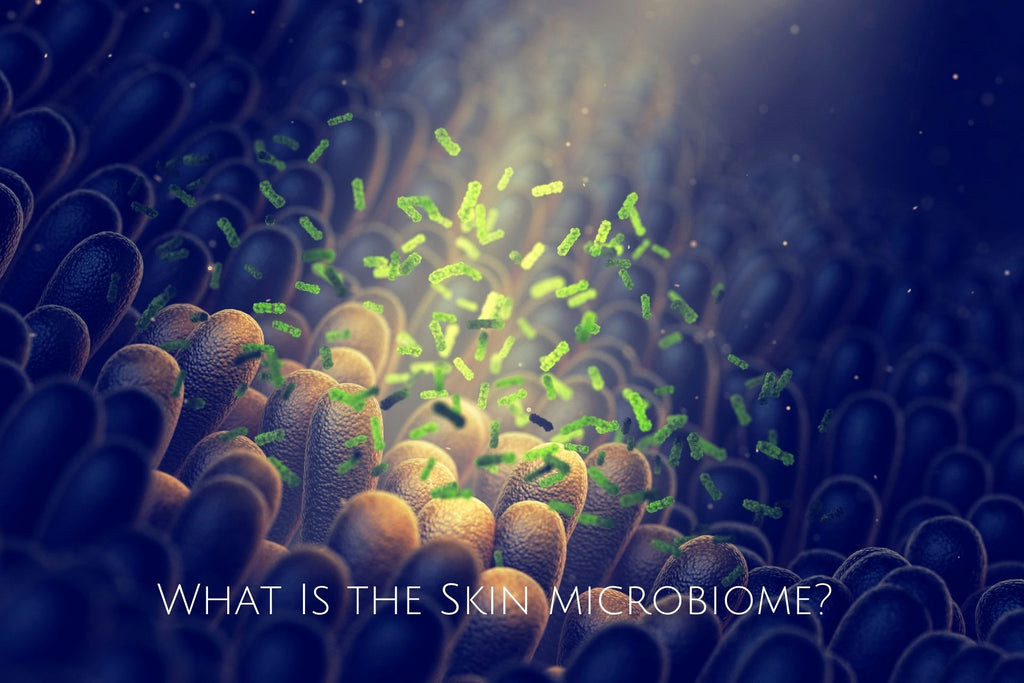
Skin microbiota, also known as skin microbiome, is a collection of bacteria found on the skin's surface. Your skin microbiome is a defense against harmful pathogens and helps protect your body. Your skin will look and feel healthy if it has a balanced microbiome. Your skin's microbiome may be imbalanced if there are more harmful bacteria than friendly, resulting in skin dryness and itching. These microorganisms, sometimes called skin flora, are benign or even beneficial. They play a crucial role in your immune system and skin appearance.
The human microbiome is a complex collection of different types of colonies that evolved over thousands of years. This depends on where they are located and how it is maintained. Diverse environmental factors like employment, clothes, antibiotics, cosmetics, hygiene products and moisturizers contribute to the variety of the microbiome that lives on our skin. There are anatomical and physiological distinctions in the cutaneous environment for male and female humans. Skin microbiota is influenced by gender through sweat production, sebum, sebum, and hormones. The host's age influences the structure and role of the skin's microbiome.
A healthy, balanced microbiome is important for your overall health and skin appearance. Microorganisms produce hormones, vitamins, and chemicals that affect your mood, metabolism, immune system, and overall health. It protects your body from harmful pathogens affecting your skin, pores, and general health. If your microbiome is balanced, the skin pores appear to be healthy. However, if they become unbalanced, there might be more harmful microorganisms than beneficial ones causing issues like drying and itching.
What role does Skin Microbiome play in our health?
The skin microbiome functions as a layer of protection for your skin. It can fight off pollutants, allergens, as well as harmful bacteria. Here's a list of what the microbiome can do for your skin.
- Help your immune system work.

Your skin microbes act as a warning light for the immune system of harmful bacteria and viruses. They play an important role in how your cells react to ultraviolet light as it is the type that causes skin cancer. To understand the mechanism behind this, some more research is required. The skin's microbiome helps the body build its immune system and alerts the immune system to fight off pathogens when it comes in contact with viruses or harmful substances.
- Protect against infection
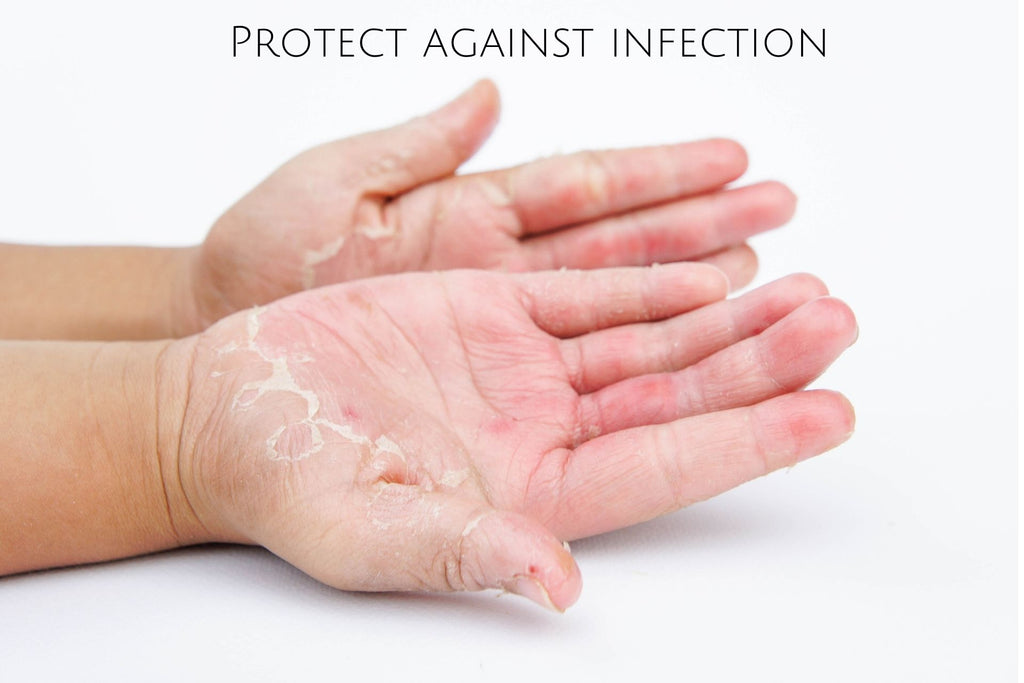
The skin microbiome has natural antibacterial properties. The skin microorganisms thrive in an acidic environment. Infectious pathogens do not like acidic environments, so they will not affect your skin if the microbiome remains intact. Therefore, some microbes can act as natural antibiotics. Many germs hate the fact that your skin is acidic.
- Treat wounds and reduce inflammation.
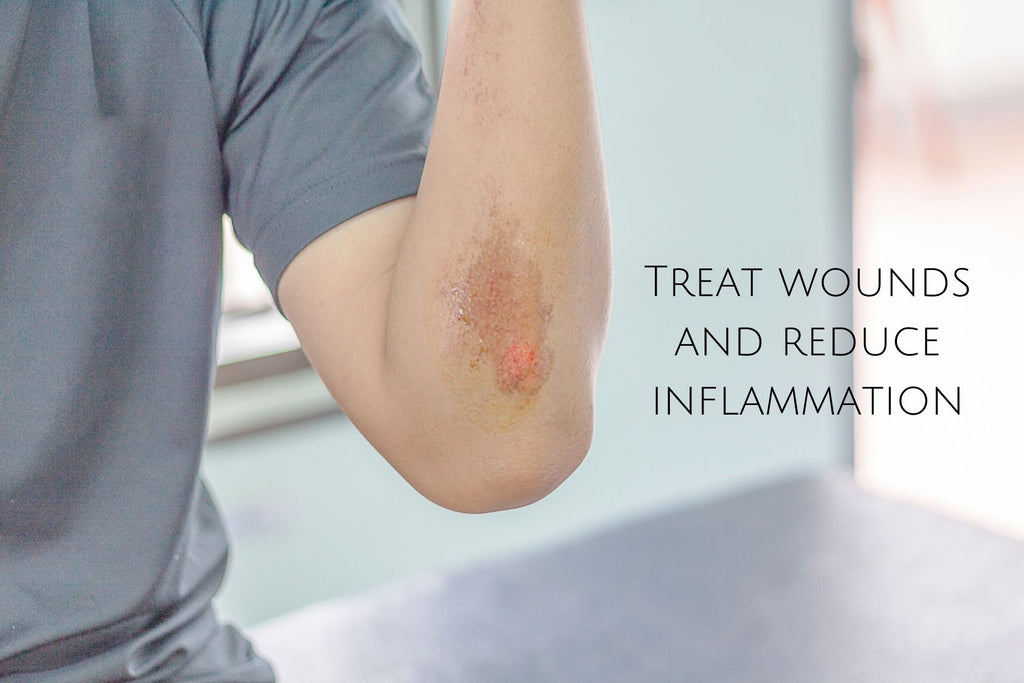
Inflammation is inhibited by the regular communication between the immune system and the skin microbiome. The immune system can balance the imbalanced microbiome by using antimicrobial peptides such as cathelicidin. A good bacterial resource in the immune system can help slow down the production and release of inflammatory substances. Your immune system can be activated or deactivated by signals from your skin microbiome. This helps to heal and control harmful inflammation.
- Protects against environmental aggressors

The skin microbiome is responsible for healing wounds, reducing oxidative damages, maintaining moist skin and minimizing allergy susceptibility. The skin microbiome can protect against harmful UV rays.
Is a balanced microbiome crucial to your skin health?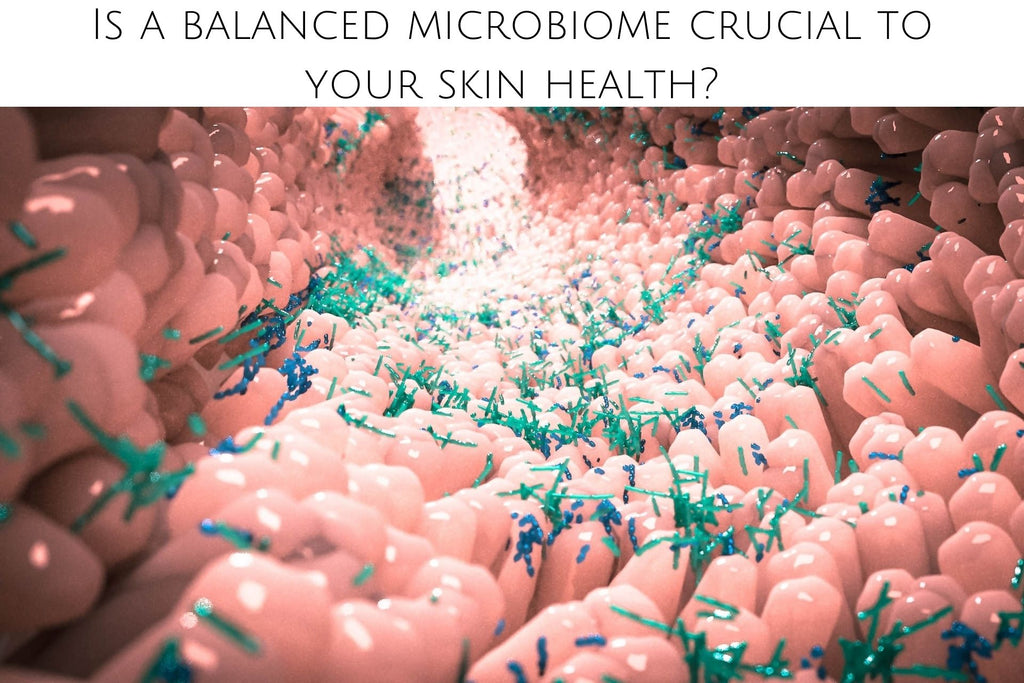
A healthy skin barrier safeguards your skin from harmful outside invaders and prevents the loss of moisture required to keep your skin soft and well-hydrated. This can leave the skin more susceptible to a range of problems. If you have a disturbed microbiome, skin disorders, and eczema, the psoriasis condition could become more severe. Acne, atopic dermatitis, and skin inflammation and irritations can also develop.
If there are a lot of healthy bacteria, then this is the time when our skin is at its best. It's all about balance and safeguarding our microbiome. In this instance, bacteria can be a positive thing. People typically believe that bacteria are harmful and always indicate infection; however, the truth is that we are born with a range of bacteria living on our skin, which is completely safe and vital. If it gets weakened, it can lead to skin conditions.
The skin is the body's largest organ and houses a myriad of fungi, viruses and bacteria that comprise the microbiota. Like the microbiome in your gut, it is accountable to keep your body healthy and safe. Even with the environmental consequences, minor scrapes or sun-related damage, as long as you're healthy, your skin's microbiome can be trusted to be steady throughout the years, even when you're an adult. But, the skin barrier is prone to losing its balance when it's compromised.
Although a healthy microbiome in healthy skin is a vital part of the body's immune system, its transformation into dysbiosis can cause various systemic diseases. Dysbiosis, an imbalance in the functional and structural equilibrium of the microbiome, can be caused by both internal and external stresses. The factors used to combat dysbiosis and help restore balance in the microbiome of the skin include taking advantage of probiotics and prebiotics. Dysbiosis can alter the composition of the organisms that make up the healthy microbiome of the skin and can trigger the pathogenic potential of the compounds.
What affects the skin microbiome?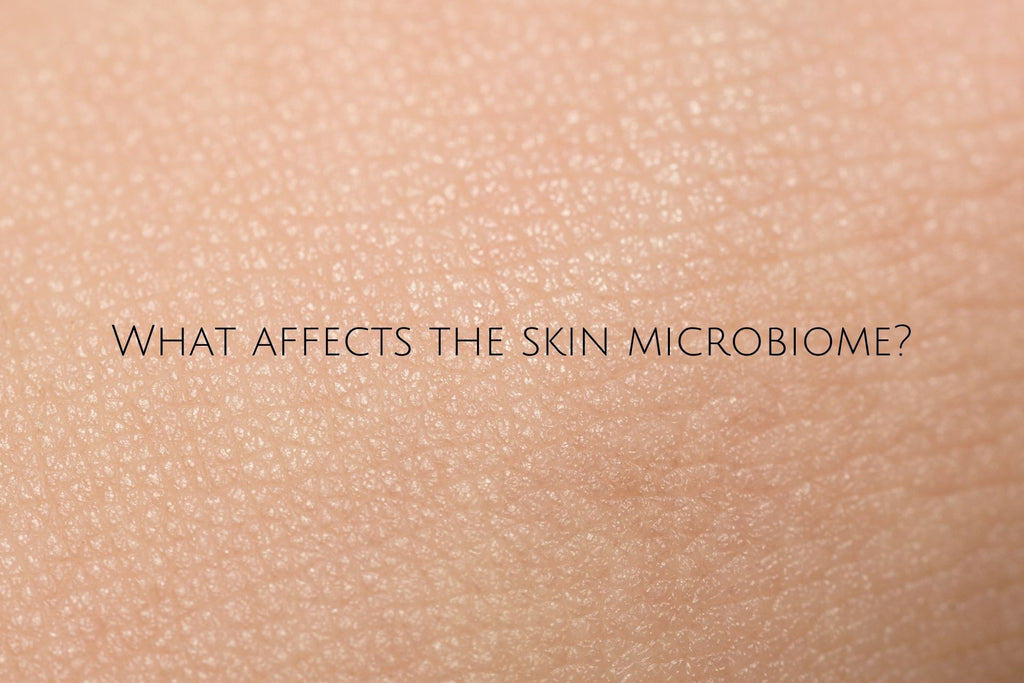
It is believed that your core microbiota is a set of microorganisms located within your skin. The microbiota may change as you age. For instance, the hormones involved during puberty trigger sebum production, natural oil that covers your skin, and certain bacteria love sebum. This is why you are more likely to get acne in your teens. The composition of your microbiome on the skin varies across your body. Some microorganisms thrive in moist places, such as your feet or elbows. Some prefer oily or dry areas.
Things that can affect the microbiome of your skin include:
- Genes
- Diet
- Other lifestyle choices, such as smoking cigarettes
- Environment
- Air pollution
- Exposition to light from UV
How To Restore Your Skin Microbiome?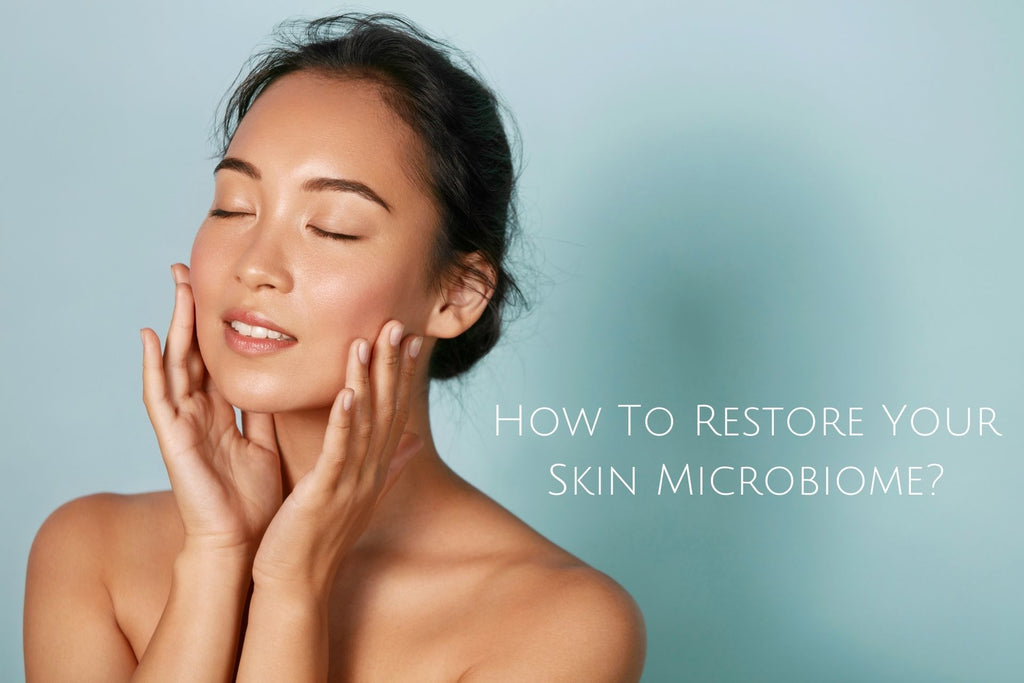
Most elements that influence the structure of your skin microbiome are outside your control of you. However, you can do a few things to safeguard the delicate skin's flora. To keep the microbiome of your skin healthy, happy, and healthy, try these tips:
- Cleanse and dry correctly.
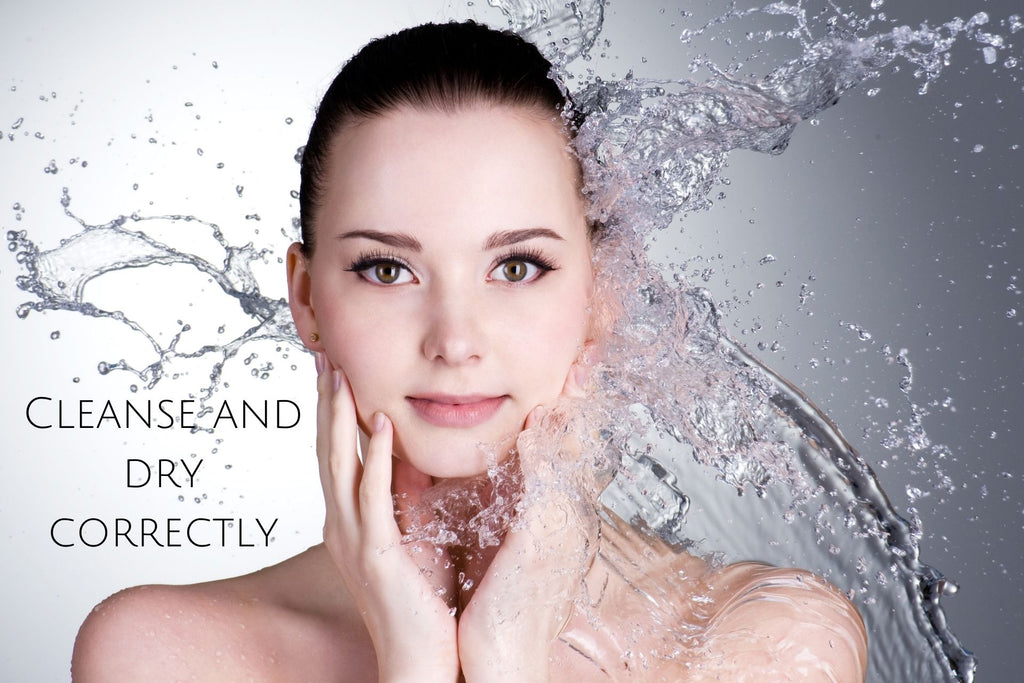
There's a fine line between maintaining good hygiene and not doing it enough. Avoid excessive washing or using harsh cleaners. Don't overdo the rubbing. A lot of friction could remove your skin's healthy microbes and result in tiny tears. These can become an ideal breeding ground for harmful pathogens. When it's time to dry the skin, gently pat dry rather than vigorously rub your body using the towel.
- Hydrate and eat healthy.

Like many elements of health, your diet plays a crucial role in maintaining your skin's health. A diet rich in healthy fats, veggies, proteins, fiber, and protein improves the gut microbiome, improving your skin's microbiome. Be sure to consume a minimum of 64 ounces of fluid every day. Being dehydrated for long periods can negatively influence your microbiome. Try to work regularly to nourish the microbiome of your skin.
- Do not use textiles made of synthetic material.

Select natural fibers such as cotton instead of synthetics as often as possible. Artificial textiles, particularly tight ones or worn close to the face, could create imbalances in your gut microbiome. Be aware that microbiota thrive on different body parts due to their distinct surroundings. If you wear clothing that increases temperature, the release of sebum or sweat production alters the normal skin conditions creating a situation where the good skin flora cannot thrive.
● Managing Stress
Psychological stress can impact the microbiome of the skin. So it's not surprising that there is a strong link between stress-related mental health and flare-ups in eczema. The exact way stress affects the skin's microbiome is a mystery and complicated. We recognize that in stressful situations, your body is in fight mode, which triggers the body to increase levels of adrenaline and cortisol (stress hormones). The body produces excess cortisol, which triggers an inflammatory response. We know that inflammation plays a major part in causing the skin's microbiome.
Stress is inevitable; however, using the appropriate techniques to handle stress can improve our mental well-being and skin. Managing stress is very personal, and therefore, it is essential to determine the most effective method to keep it under control. You could also try doing some exercise, journaling, meditating, and spending time with your friends and family. Therefore, a good night's sleep is essential for everyone.
- Choose the products wisely
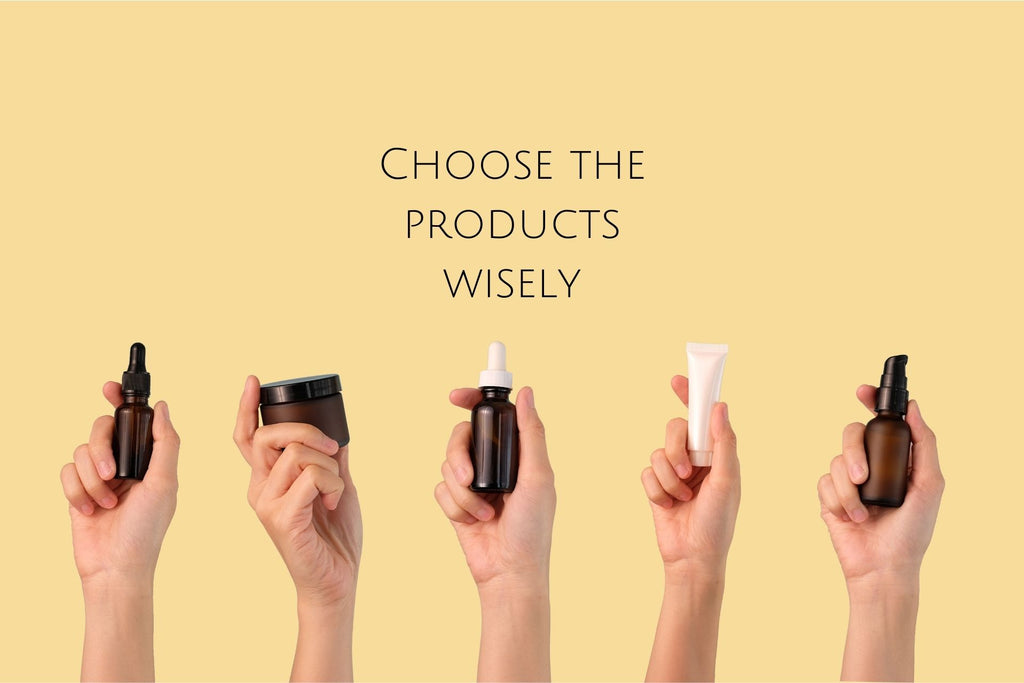
The ideal pH for your skin is below 5. This is the pH appropriate for our skin and helps keep pathogens from growing. If we apply products that are excessively acidic or alkaline, they alter the pH balance of our skin and increase the risk of pathogenic bacteria entering the flora of our skin. We often apply harsh cosmetics to scrub our faces and clean pores to give us radiant skin. However, these harsh substances can also strip our dewy and natural oils damaging the skin's natural ecosystem. It is recommended not to use antibacterial soaps and stay away from hand sanitizers.
Apart from the antibacterial variety, soaps are generally alkaline, which could alter the balance of acidic skin and expose you to alkaline-loving pathogens. If you're willing to go above and beyond to ensure that your hygiene does not harm your microbiota, look for the available microbiome-friendly soaps. When it comes to being moisturized, you should be aware that many moisturizers contain ingredients that are not compatible with microbiomes. Use gentle, water-attracting moisturizing products that contain ingredients like hyaluronic acid.
- Get Sweaty

The effort of working up a sweat during your workout isn't a good idea for the skin. In reality, many of us are rushing to get the sweat off our skin as soon as possible. But, when sweat remains on the skin, it aids in building up the skin microbiome because sweat is a source of antimicrobial peptide dermcidin. It can help shield the body against harmful bacteria. We're not suggesting that you don't wash off your sweat because it's a must! However, remember that sweating out offers physical, mental, and psychological health benefits and can also improve your skin's flora.
- Pay attention to how you shower.

The beneficial microorganisms within your skin's pores are believed to tear off natural oils from the skin. If you shower excessively, it may take away your skin's oils and even cause harm to your skin's microbiome. You don't need to quit showering. Take the time to polish your showering routines to determine if you are over-sanitizing your skin. There's no such thing that is too clean. To safeguard the natural oils on your skin, you can always change to more natural soap, take shorter showers or refrain from showering in too hot water. There's a good chance that we all have a specific part of our showering routines that we can be happy with to maintain and protect the flora of our skin.
Does The Skin Microbiome Change As You Age?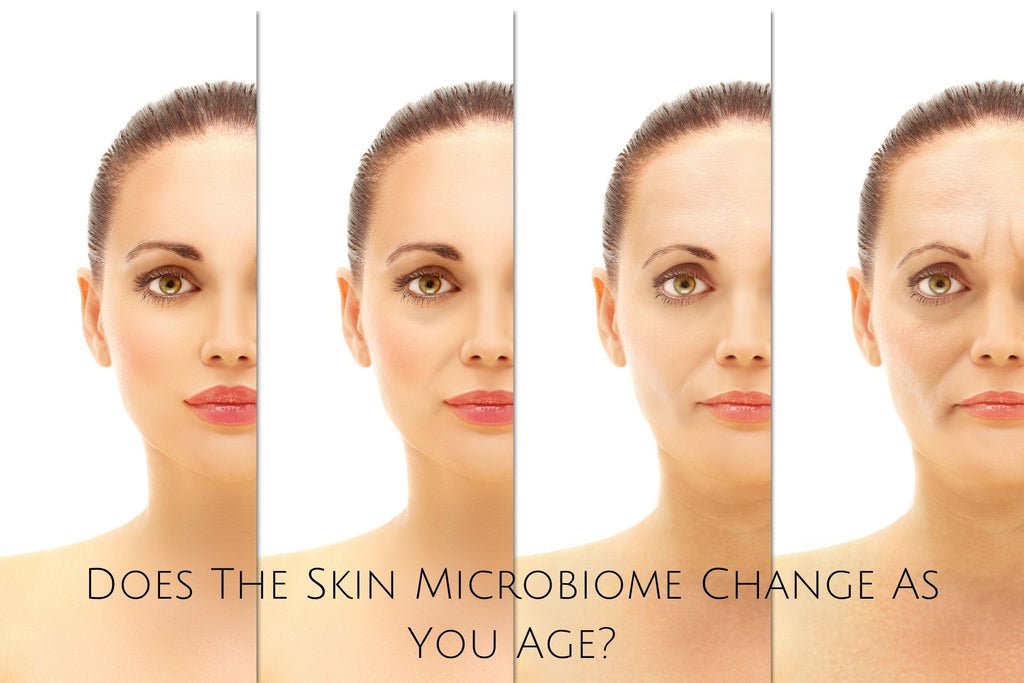
It's true. The skin microbiome is essential for your health since it helps you protect yourself from many of the most prevalent ailments that result from a lack of hygiene. The skin microbiome is a significant part of your body's immune system, which protects your body from other illnesses and infections. The most significant change that occurs with time is the decline in the number of bacteria living on skin oil. This is in line with the decrease in the amount of skin oil (sebum) production. Additionally, there will be an increased diversity of microbiomes linked to dry skin.
The composition of Symbiome's postbiomic oil corresponds to the healthy human sebum, which moisturizes the skin, helping to maintain the function of the barrier, and improves the appearance of wrinkles and fine lines. The composition of your skin's microbiome changes significantly when you begin to age. The changes in the microbiome of your adult skin are closely linked to changes in your body's physiological function that occur due to aging. Additionally, the effects of aging alter the microbiome of the skin. Conditions like diabetes and irregular bowel syndrome may affect the microbes.
Conclusion
The microbiome protects your skin. It is, however, extremely delicate and requires lots of care. For ensuring that the microbiome does not get damaged and works properly, ensure that you eat a healthy diet, stay away from unhealthy lifestyle choices and take good time to take care of your skin. Changes in the pH, hormones, and sebum secretion can be observed by aging. They influence the functioning and structure of the skin microbiome in older people. The skin's overall condition is affected by various elements, including gender, lifestyle, environment, hygiene, and age.
If you've got an unbalance in your biome for your skin, you may require additional assistance to bring it back in line. This could include oral medications, creams, or gels to treat skin problems. If you're unsure that your skin's microbiome is healthy or if you're experiencing any skin issues you think can be addressed with a more effective defense against pathogens, think about altering your diet. Increase microbial diversity by encouraging healthy gut bacteria and eating nutritious food items.
Recent Posts
-
AI-Nutrition & Microbiome Tracking: The Personalized Wellness Revolution for India
Introduction: Traditional nutrition and wellness have relied on a one-size-fits-all approach, offeri
-
The Gut-Brain Connection: How Your Digestive Wellness Affects Mood, Skin & Sleep
Introduction: The gut-brain connection is a fascinating and complex system that plays a significant
-
The Mind-Body Connection: How Blood Sugar Affects Your Mood and Metabolism
Introduction: In today's fast-paced world filled with refined foods, chronic stress, and sedentary h

